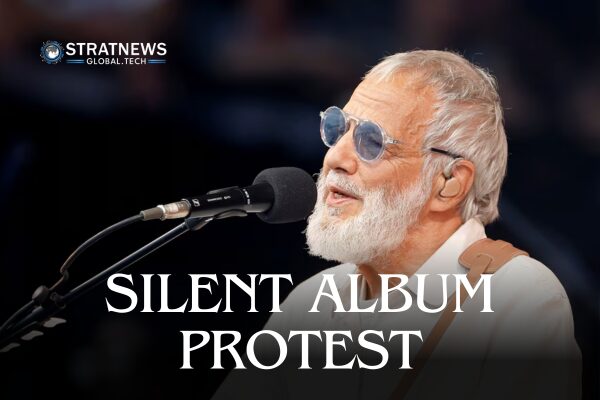Musicians Release Silent Album to Protest UK’s AI Copyright Law Changes
More than 1,000 musicians, including Kate Bush and Cat Stevens, have released a silent album in protest against proposed changes to Britain’s copyright laws. The government’s plan could allow artificial intelligence (AI) firms to train their models on copyrighted music, literature, and art without directly compensating creators.
A Silent Protest Against AI Copyright Changes
The album, titled Is This What We Want?, features recordings of empty studios and performance spaces. Organisers say this represents the potential future of music if AI is allowed to train freely on artists’ work without permission or payment.
“In the music of the future, will our voices go unheard?” asked Kate Bush, whose 1985 hit Running Up That Hill found renewed success in 2022 thanks to Stranger Things.
The UK government’s proposal would require creators to opt out rather than opt in to protect their work from being used in AI training. This reverses the long-standing principle of copyright law, which traditionally grants creators control over how their work is used.
Artists and Industry Leaders Speak Out
The move has sparked backlash from musicians, composers, and industry leaders, who fear it could undermine creative professions. Prominent artists such as Annie Lennox, Billy Ocean, Hans Zimmer, Tori Amos, and The Clash have joined the call for the government to reconsider.
“The government’s proposal would hand the life’s work of the country’s musicians to AI companies for free,” said Ed Newton-Rex, founder of Fairly Trained, a non-profit promoting ethical AI training. “The UK can be leaders in AI without throwing our world-leading creative industries under the bus.”
Government Defends AI Policy
A public consultation on the proposed legal changes closed on Tuesday. A government spokesperson defended the proposal, stating that current copyright and AI regulations are limiting the growth of creative industries and AI development.
“We have engaged extensively with these sectors throughout and will continue to do so. No decisions have been taken,” the spokesperson added, saying the final proposals will be announced in due course.
As AI continues to evolve, the debate over balancing technological innovation with protecting creative rights is set to intensify, with artists determined to ensure their work is not used without consent.
With inputs from Reuters


